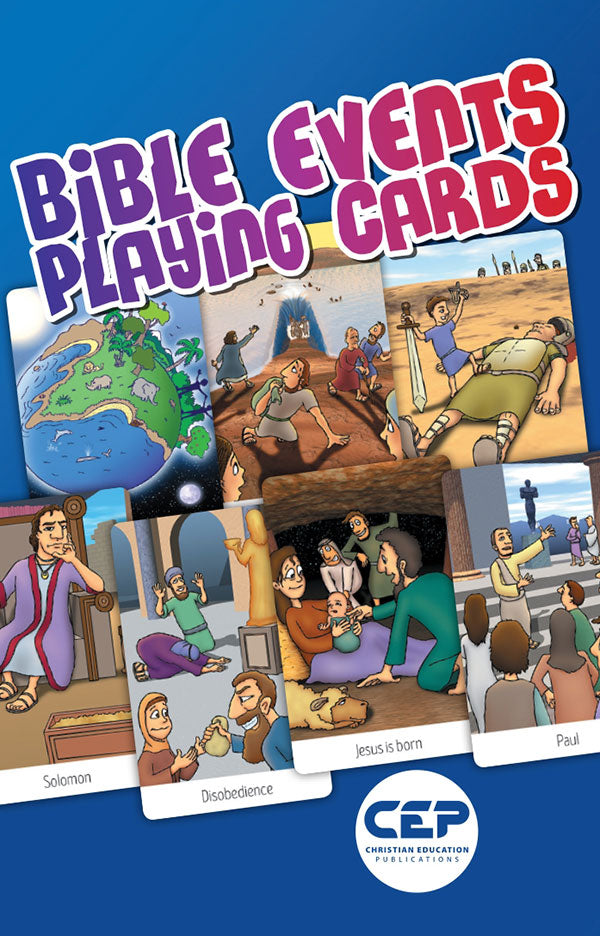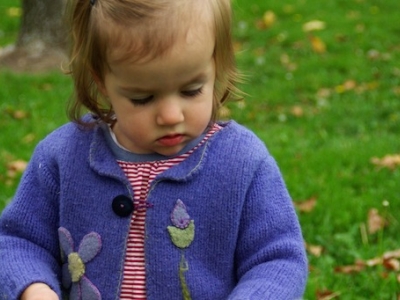
The value of memorisation
How it can help our children grow in both the knowledge and love of God.
As Christians trying to teach our kids how to love and follow Jesus, it can feel like there are a hundred different ways to approach this task. We want them to grow a faith that is heartfelt and genuine, but also to understand the Bible and the gospel in a cognitive way that’s reasonable for their age. There are lots of strategies and things to try, but today I am going to advocate for one tool that might seem old fashioned or unpopular: memorisation.
I think it’s helpful for our kids to memorise written prayers, creeds and catechisms, even before they can cognitively understand the concepts they are learning to say. I think knowing these words and having them imprinted on their memory, even if it’s not something they comprehend fully until years later, has value.
Out of fashion
‘Rote learning’—the memorisation of facts—has received a bad rap in the education industry over the last little while. You can end up with kids who know the times tables by heart but can’t solve a multi-step maths problem. The argument is often that we should be teaching skills, not facts—after all, can’t kids just look up facts online anyway?
As a former primary school teacher, I absolutely understand why this shift was made. But I do think we lose something when we focus only on practice and application of skills without a solid base of factual knowledge, even rote memorisation of facts.
Yes, a kid needs the skills to solve multi-step complex maths problems beyond the times tables. But, if they know their times tables automatically, they will spend less time and energy in the multi-step problem figuring out 9 times 8 and will be able to work faster and more efficiently to solve the overall problem. Memorisation of facts and knowledge can be the base that allows critical thinking and creative inquiry to happen.
What does this have to do with teaching our kids about Jesus?
In parallel with the changes in secular education, in recent years Christian communities have developed a much more holistic approach to teaching kids the gospel and how to trust Jesus. This is good. We know that faith is not head knowledge of the Bible alone but needs a heart that has been changed by Jesus.
But in avoiding ‘rote’ learning, such as repeating Old stories or listing off the Ten Commandments, have we accidentally neglected key building blocks of knowledge that can deepen our children’s faith and knowledge of God?
A case for Christian memorisation
In our family we say the Lord’s Prayer with our two-year-old every night before she goes to bed. She is far too little to understand some of the ideas in this prayer. But there are a lot of good reasons to pray the Lord’s Prayer together regularly, more than just what she can learn from it at this point in time. For example, by us doing this together every night, no matter what else is happening, we are teaching her more than a prayer—we are teaching her that praying together is something important and valued in our family.
But we also do this because we want her to grow up knowing the Lord’s Prayer. It is where Jesus starts when he is asked how we should pray. So, as we teach our daughter to pray, we follow Jesus’ example. We give her good, true words memorised in her head as a way to begin talking to God, no matter what else is going on in her life and heart. It is good for her, and it is good for us as parents. (Next week I’ll share one particular phrase of the Lord’s Prayer that has been teaching my heart the most lately.)
There are two versions of the Lord’s Prayer recorded for us in the Gospels—a longer one in Matthew 6:9–13 and the following shorter one in Luke 11. The early church combined elements from both of these versions and added a doxology at the end (‘For the kingdom, the power and the glory are yours, now and forever’) for use in their liturgies. With our daughter, we have chosen to use the version of the prayer that is said at our church (from the Anglican prayer book) to keep things consistent for her.
One day Jesus was praying in a certain place. When he finished, one of his disciples said to him, ‘Lord, teach us to pray, just as John taught his disciples’.
He said to them, ‘When you pray, say:
“Father,
hallowed be your name,
your kingdom come.Give us each day our daily bread.
Forgive us our sins,
for we also forgive everyone who sins against us.
And lead us not into temptation.” (Luke 11:1–4)
Jesus gives his listeners (and readers!) words to repeat, with a structure and rhythm. True words said over and over. Now of course, prayer takes many forms, and we should be teaching our children a variety of types of prayer. For example, we have recently introduced thanking God for something each day (recent things my toddler has thanked God for are milk, cat, banana and her dummy!). But when words fail and she is too tired or we are too tired, we can fall back on the precious words that Jesus taught and say them together.
From the way he teaches the disciples to pray, Jesus seems to agree that memorisation and repetition have value. The phrase ‘give us today our daily bread’ (Matthew 6:11) implies that the Lord’s Prayer is designed to be said daily. The Old Testament concurs that these habitual rhythms and reminders are helpful in learning to love God. When God instructs Israel in the way they should live, he says:
Hear, O Israel: The Lord our God, the Lord is one. Love the Lord your God with all your heart and with all your soul and with all your strength. These commandments that I give you today are to be on your hearts. Impress them on your children. Talk about them when you sit at home and when you walk along the road, when you lie down and when you get up. Tie them as symbols on your hands and bind them on your foreheads. Write them on the doorframes of your houses and on your gates. (Deuteronomy 6:4–9)
Both New and Old Testaments value the way that memorisation can aid the development of knowledge and love of God. But I also have a real-life example that has taught me their value. My husband attended a liturgy-based church as a child. He didn’t become a Christian until his late teens, but when he did join a church again, he found he already knew lots of prayers and creeds, as well as ideas mentioned in sermons—just from hearing them over and over again as a kid, before he could even understand them.
Scripture and our experiences have informed our approach to teaching our daughter to know and love God. For me and my husband, learning prayers and creeds, memorising songs and Bible passages, and imprinting the words of God on our daughter's mind and heart will continue to be a really important part of passing on our faith.
I hope our daughter will always know and love Jesus, but I know there will be times of doubt. I hope her inquiring mind will be unafraid of challenges as she puzzles out the big questions about God and life. And when she asks these questions, we hope that she’ll be able to seek answers from the solid foundation we have given her of the core ideas of the gospel. I want her to know the truth—what is the gospel and what is not—but most of all, I hope she will know and love Jesus all her days.
---
Rebecca Sharley is a trained primary school teacher with experience in kids’ and youth ministry. She runs training workshops in kids’ ministry and writes a newsletter called ‘Searching For Grace’ on Substack. She is the author of God’s Family Now: A New Look at Kids’ Ministry.

Bible Events Playing Cards
These 32 Bible Events Playing Cards are ideal for teaching the significant events and characters from the Bible’s timeline. Spanning God’s creation of the world to Jesus’ second coming, these are an excellent resource for children’s and youth ministry.
For more articles from Growing Faith, subscribe to our monthly e-newsletter.
To hear about the latest books and resources from Youthworks Media, subscribe here.








